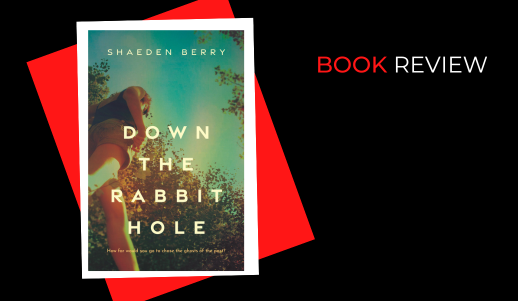By Shaeden Berry
Publisher: Echo Publishing, 2024
Publisher’s blurb
How far would you go to chase the ghosts of the past?
Alice Montgomery goes missing in 2015.
Seven years later, her best friend Hannah is bouncing from job to job, city to city, forever feeling the need to outrun something, but unsure what. With the niggling need to move nipping at her heels, Hannah decides to return home – a small coastal town in Western Australia – for the first time since she left, to help her mum after surgery and confront their fractured relationship.
When Hannah hears that Marnie Montgomery, Alice’s mum, has been diagnosed with terminal cancer, she is seized by terror that she will never know the truth of her friend’s disappearance; whether she ran away, or met a different, darker fate. Hannah begins to ask questions, starting with Marnie, an addict and recluse, who has long been dogged by rumours that she was in some way responsible.
Insisting she had nothing to do with it, Marnie instead points the finger at a local teacher, Rachel Olney, haunted by broken dreams and the consequences of a single bad decision she made many years ago.
What unfolds is a tale of three women – Hannah, Marnie, Rachel – and a reflection on grief left unchecked; what it means to be a mother, a daughter; and all the terrible ways in which we can hurt one another. As the mystery of Alice dances on the periphery, it becomes ever clearer that this is a story centred not on a potential crime, but on those left behind by tragedy, desperately seeking closure that might not exist.
Review
By Rachel Le Rossignol
Hannah lives life from a distance. She is emotionally and mentally disconnected from her flatmates and mother, the only people in her life. She doesn’t put down roots, moving frequently, and she’s placed as much physical distance as possible between her childhood in Perth and her life now, studying in Melbourne. From the start of the novel it’s clear Hannah is running from something. She moves and changes occupations frequently, uncommitted and disinterested in everything. There are hints that Hannah’s unwillingness to engage with life is linked to her father’s early death following a period of mental illness, a trauma that she refuses to face.
So it’s a surprise to Hannah herself when she decides to go back to the family home in Perth, the place where her father died, after her mother announces she is having a hip replacement operation. Hannah hasn’t been home in five years. Her relationship with her mother is strained to breaking point and it quickly becomes apparent she isn’t really going there to provide support to her mother. So why has Hannah returned home?
The trip home tilts off balance when Hannah learns from her mother’s neighbour and best friend, Ginger, that Marnie Montgomery has terminal cancer. Marnie is the mother of Hannah’s best friend Alice, who went missing seven years ago, when she and Hannah were sixteen. This revelation causes Hannah to turn and face the past she has long run away from. Driven by the thought that this may be her last chance to discover what happened to Alice, Hannah investigates through every means available to her, no matter the cost to others.
The more Hannah uncovers, the more that gaps in the story weigh darkly on the narrative, creating a feeling of dread. Tiny glimpses of truth break through now and then. But much like Nick Carraway in The Great Gatsby, not only do we as readers learn we can’t trust Hannah, but she comes to realise she can’t trust herself. Hannah’s life is in pieces, and her investigation looks like it might break those she pursues for answers in the same way.
Hannah is not a likeable character. She is continually manipulating others, lying to them, and pushing them away. But she is driven by unspoken trauma, and the fractures in her inner world are believable. Through her search for an answer to Alice’s disappearance we meet other vividly drawn characters, each with their own stories, secrets and traumas. The external setting, though realistic and familiar, is less important than the internal landscape of trauma that is so insightfully explored.
Down the Rabbit Hole breaks the conventions of the murder mystery genre, taking the reader on a deep, thoughtful exploration of the damage people do to each other, the secrets people keep, and the way echoes of these can change lives forever.
